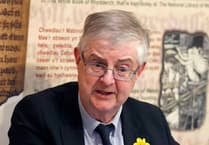It was a striking piece of advice. Don’t criticise Putin as a person.
Given Alexei Navalny’s sudden death some might argue he should have heeded it too. But was Vladimir Putin responsible for Navalny’s death?
His widow seems to think so. She has accused him of killing her husband as well as wanting to “kill our hope, our freedom, our future”. On the other hand, a Kremlin spokesman has accused Western leaders of making “obnoxious statements” about President Putin’s responsibility for the sudden death of that charismatic leader.
Realistically, I doubt we will ever possess enough evidence to prove what really happened, whatever our suspicions. There are those who will remind us that people should be treated as innocent until they have been found guilty too. No easy task then, especially in the murky world of international politics.
But even if we could determine that Navalny’s unexpected demise was an act of political homicide, would those responsible for it ever be brought to justice? History shows us that some people and some groups seem to be above the law and not just beyond personal criticism.
Sadly, Alexei Navalny’s death is yet another sobering reminder that life can seem pretty unfair at times. Good people often seem to suffer whereas the ‘baddies’ appear to ‘get away with it’ and this inevitably offends our sense of justice. This is particularly true for those who say they believe in a good and loving God.
The writer of Psalm 73 was acutely aware of this. In fact, he nearly lost his faith when he thought about the things he saw happening around him. I like the Message translation. It reads ‘The wicked get by with everything; they have it made, piling up riches. I’ve been stupid to play by the rules; what has it gotten me?’
Life seemed so unjust; it simply didn’t make sense – until, that is, he went into ‘the sanctuary’ and ‘finally understood the destiny of the wicked.
Unfortunately, we tend to romanticise the thought of life after death, that’s if we believe in it of course. I do and there is an empty tomb in Jerusalem to prove it. But the Christian faith teaches us that life after death entails more than resurrection; it also includes judgement. This has to be the case if our Creator really is a God of justice.
No one understood this better than the apostle Paul who told a group of first century Athenian dignitaries He “has set a day for judging the world with justice by the man he has appointed, and he proved to everyone who this is by raising him from the dead.” He was talking about Jesus of course.
Lots of people laughed at him of course, and lots still do, but in doing so they run the danger of making the greatest mistake of their lives, one they will regret for all eternity because judgement is as certain as death itself.
Now if that is the case, it means that even Pontius Pilate will stand before Jesus and admit he got it wrong. For on that day every knee will bow, and every tongue will confess that Jesus Christ is Lord.




